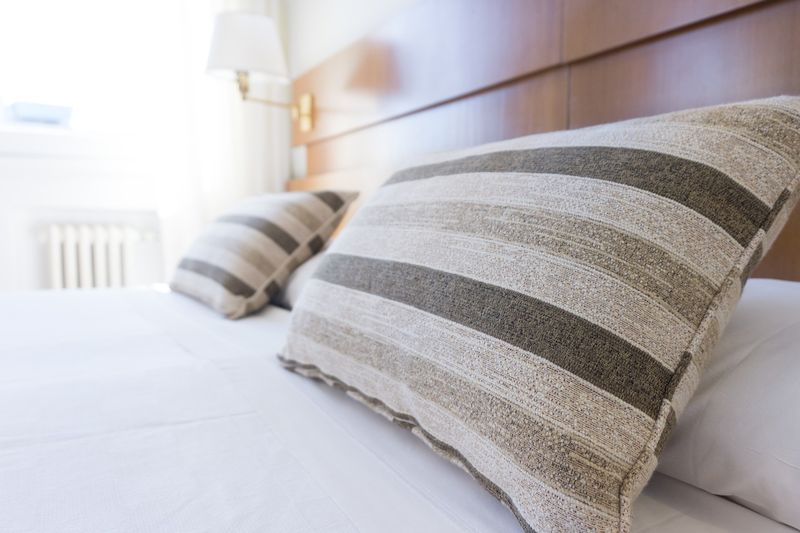Allergies and allergens can significantly impact your quality of life and sleep. Unfortunately, mattresses can be quite the hotbed for hosting allergens. Finding the best mattress for allergies can make a significant difference to your sleep quality and overall health.
How Are Mattresses And Allergies Related?
A conventional mattress has plenty of space and shelter for common allergens. The usual culprits are:
Dust Mites
Dust mites are the most common allergen in mattresses. Oh, and for the sake of being grosser, it is usually their poop that causes allergic reactions. Coming in contact with dust mite poop or dust mites can cause allergic reactions in people. Dust mites feed off human skin flakes, and since we shed skin flakes regularly, there is plenty of food for dust mites on your bed. They also prefer warm and humid environments, making the bed and mattress an ideal living space.
Molds
Mold is a fungus, and even if it isn’t clearly visible, the spores can be around you. In some cases, mold may find a place to grow inside your mattress, making the bed riddled with allergens.
Pet Dander
Much like humans, pets shed skin too. If you are allergic, you may be troubled by your mattress since it can be a depository for pet dander.
Chemicals Used In Mattresses
Low-quality mattresses use a variety of shady chemicals to make their mattresses more appealing. These can include fireproofing chemicals, or those used to treat foam. Many of these chemicals have volatile organic compounds (VOC) that can trouble sleepers and even trigger allergic reactions.
Space In The Mattress
Ideally, your mattress should have no space where allergens like dust mites, molds, or dust can deposit and grow unchallenged. Unfortunately, that’s not always the case and many mattresses have enough space to allow these problem elements to thrive. Older innersprings for example, have plenty of open space for dust mite colonies to thrive. If the mattress is in a damp location, layers of foam used may also be at risk of developing mold.
How To Get The Best Mattress For Allergies?
If you are experiencing mattress allergy symptoms, it’s time to get serious and find a good solution. Here’s how:
Antimicrobial And Hypoallergenic Mattress Materials
Many good quality mattresses use materials that discourage allergens. Finding a hypoallergenic mattress can start with considering the materials used in construction. Natural latex foam is naturally hypoallergenic, antimicrobial, and dust mite resistant, making it a great choice. You can also consider mattresses with organic components like bamboo as to have the same qualities.
Memory foam is another excellent material and is the most popular choice. Latex foam and memory foam are usually dense enough to make it difficult for dust mites to burrow through them, creating an environment unsuitable for dust mites. You should also consider your own personal allergies, like those to latex before committing to a mattress purchase like this. Many people don’t have a problem since they don’t come in contact with the foam, but it’s best to consult your doctor and consider the severity of your allergy before making the investment.
Avoid Quilted Covers And Pillow Tops
Quilted covers and eurotops and pillow top mattresses are usually soft, allowing a place for dust mites to live. They’re also more prone to holding skin flakes, mold spores, and pet dander.
Clean Regularly
Good hygiene goes a long way. Regularly vacuum your room and mattress so there is no space for dust mites. If you are very sensitive to dust and other particles, you should consider adding an air purifier or filter to your room. Change (and wash) your bedsheets and mattress protector/cover regularly.
Look For Quality Certifications On Your Mattress
Since low-quality mattresses treated with harsh chemicals are a problem, you should consider mattresses built to a higher standard. Check the certificates a mattress has and see its meaning. For example, CertiPUR-US and Oeko-Tex certifications are important for memory foam mattresses, or foam mattresses in general.
Best Mattress For Allergies — Conclusion
Your mattress can be a breeding ground for allergens. Good hygiene along with a quality mattress should go a long way in making your sleep better. Your best mattress for allergies — speaking in terms of general expectations — is a memory foam mattress or a natural latex foam mattress. Avoid mattresses with quilted top layers to reduce chances of dust mites finding a place to live!

